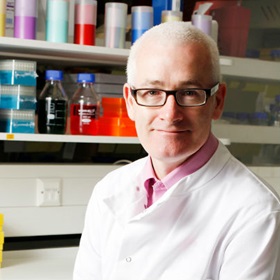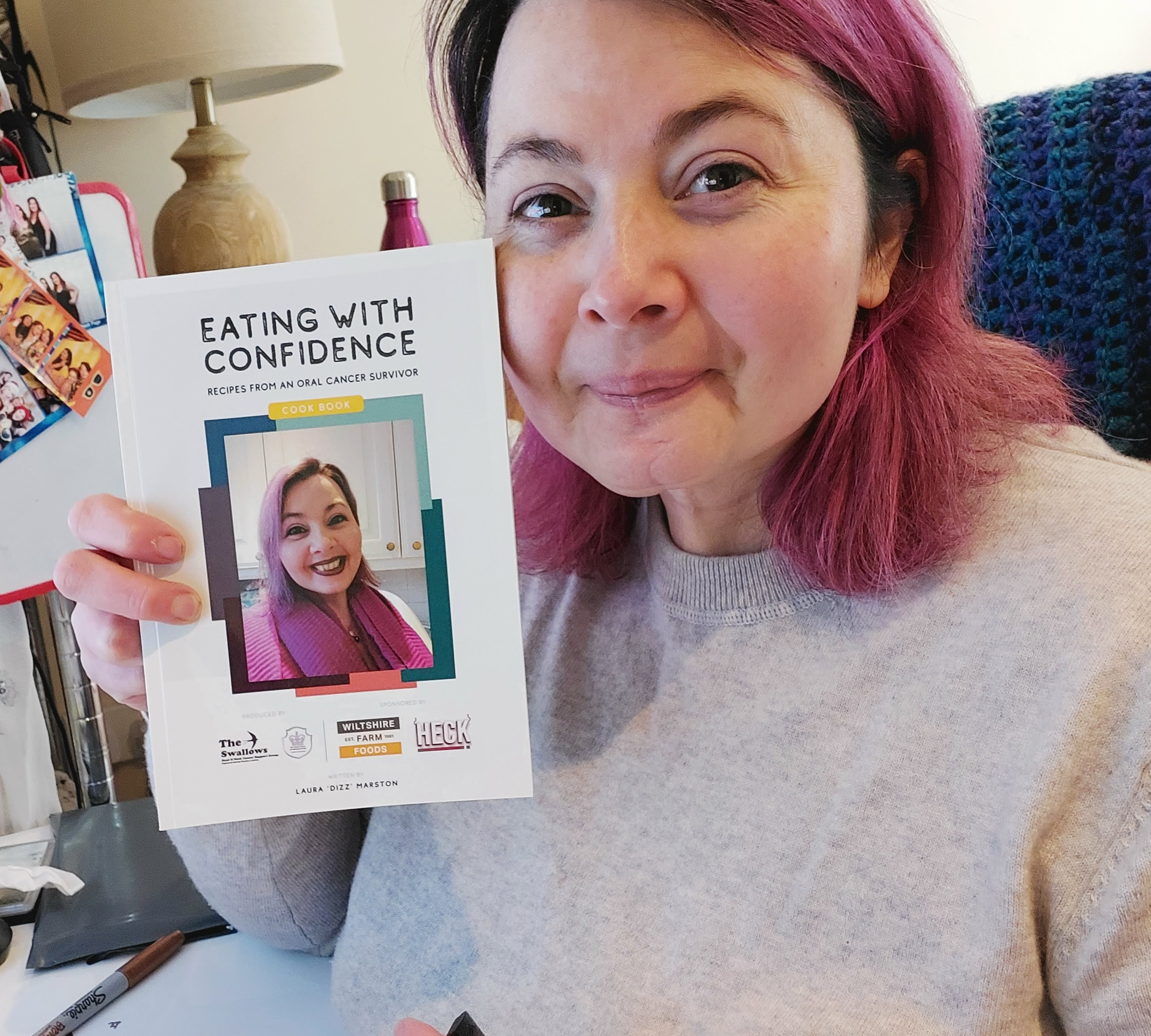An immunotherapy helps patients live years longer without their cancer getting worse or coming back, a major phase III trial has found.
Pembrolizumab kept cancer at bay for some patients for an average of 60 months (five years) compared to 30 months when added to standard-of-care, according to the international trial, presented at the American Society of Clinical Oncology (ASCO) annual meeting.
After three years, patients given pembrolizumab had a ten per cent reduced risk of their cancer returning elsewhere in the body – indicating that the immune system is activated to hunt down metastatic cancer.
The Keynote-689 trial involved 192 sites in 24 countries around the world, including a team led by Professor Kevin Harrington at The Institute of Cancer Research, London and Royal Marsden NHS Foundation Trust.
The trial, which was funded by MSD (Merck & Co., Inc., Rahway, NJ, USA) and led by researchers at Washington University School of Medicine in St. Louis, MO, USA, tested the drug in patients with newly diagnosed locally-advanced head and neck cancers. Hundreds of thousands of patients are diagnosed with these cancers around the world each year.
Treatment hasn't changed in over two decades
Of the 714 patients on the trial, 363 patients received pembrolizumab followed by standard-of-care and 351 received only the current standard-of-care – surgery to remove the tumour, followed by radiotherapy with or without chemotherapy.
Standard-of-care has not changed for these patients in over 20 years, and more than half of patients are unlikely to survive to five years.
The immunotherapy worked particularly well for those with high levels of the immune marker, PD-L1, but it ‘dramatically’ increased the chance of remaining well without the disease progressing or coming back for all tumour types.
The treatment also protected patients from unrelated cancers, cutting the risk in half from 5 per cent to 2.5 per cent.
Immunotherapy worked well combined with surgery
Pembrolizumab works by taking the brakes off the immune system’s ability to attack cancer cells, and is already approved for use on its own or in combination with chemotherapy in head and neck cancer that has come back or spread around the body.
Previous trials of the drug given in patients who have received chemoradiotherapy without surgery for locally-advanced disease have not been as successful.
The researchers believe the drug has been so effective in this current trial because of its use prior to surgery and then as part of the post-operative treatment. The drug primes the immune system to attack the cancer before it is surgically removed, and the immune system is then ready to continue fighting it all over the body when it is targeted with post-surgery chemotherapy or radiotherapy.
The researchers hope that regulators around the world will approve the use of pembrolizumab, in combination with surgery followed by radiotherapy, with or without chemotherapy, to treat this form of locally-advanced head and neck cancer.
Earlier results of the KEYNOTE-689 trial were recently presented at the American Association for Cancer Research Annual Meeting.
This could 'change the world for these patients'
Professor Kevin Harrington, Professor of Biological Cancer Therapies at The Institute of Cancer Research, London and Consultant Oncologist at The Royal Marsden NHS Foundation Trust, said:
“For patients with newly-diagnosed, locally-advanced head and neck cancer, treatments haven’t changed in over two decades. Immunotherapy has been amazingly beneficial for patients with cancer that has come back or spread around the body but, until now, it hasn’t been as successful for those presenting for the first time with disease which has spread to nearby areas.
“This research shows that immunotherapy could change the world for these patients – it significantly decreases the chance of cancer spreading around the body, at which point it’s incredibly difficult to treat.
“The results of this trial show that pembrolizumab dramatically increases the duration of disease remission – for years longer than the current standard treatments. It works particularly well for those with high levels of immune markers, but it’s really exciting to see that the treatment improves outcomes for all head and neck cancer patients, regardless of these levels.”
'Excellent results'
Professor Kristian Helin, Chief Executive of The Institute of Cancer Research, London, said:
“It’s great to see these excellent results. Immunotherapy continues to deliver and to learn that patients with immunotherapy added to their treatment plan had, on average, double the length of time free from evidence of disease compared to those without it – with some patients still yet to see their cancer return – is wonderful. I hope for a quick regulatory approval for this new treatment option for patients with head and neck cancer.”
'This treatment has given me the gift of life'
Laura Marston, 45, from Derbyshire was diagnosed with stage four tongue cancer in 2019 after an ulcer on her tongue didn’t heal. She was later referred to The Royal Marsden where she joined the KEYNOTE-689 trial.
“I was so excited to be on a clinical trial and knowing I was in the best hands was really reassuring. As part of the trial I underwent two rounds of immunotherapy before undergoing surgery.
“In the months following my surgery I had to relearn how to eat and talk again while also having ten more infusions of immunotherapy, chemotherapy, and radiotherapy. My clinical team were amazing and went above and beyond for anything I needed. I am amazed I am still here six years later, this treatment has given me the gift of life.”
Dr. Douglas Adkins,study co-principal investigator and Professor of Oncology at WashU Medicine in St. Louis is a medical oncologist who treats patients at Siteman Cancer Center, based at Barnes-Jewish Hospital and WashU Medicine. He said:
“The addition of immunotherapy using KEYTRUDA® [pembrolizumab] to standard of care surgery and adjuvant (chemo)radiotherapy resulted in a significant reduction in the risk of event-free-survival events by 27%, compared with standard of care therapy alone.
“These results are notable as they mark the first time an anti-PD-1 therapy has demonstrated a statistically significant and clinically meaningful improvement in event-free survival in the neoadjuvant and adjuvant setting in earlier stages of head and neck squamous cell carcinoma.”

 .
.
 .
.
